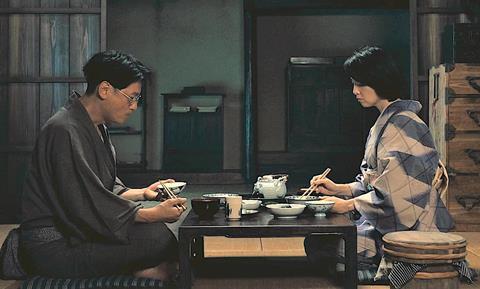Powerful dramatisation of a massacre that followed an earthquake in Japan a century ago

Dir: Tatsuya Mori. Japan. 2023. 137mins
Some understanding of the history between Japan and Korea might prove useful before approaching September 1923. It seems likely to resonate most meaningfully in those two countries, but director Tatsuya Mori invests his film with enough colour, character and incident to make it accessible to international audiences. Overcoming initial stodginess, it builds into a powerful recreation of the attitudes that led to a shocking massacre in the aftermath of the Great Kanto earthquake 100 years ago. Released in Japan to mark that centenary on September 1st, it could attract wider attention following an international premiere at Busan.
Overcoming initial stodginess, it builds into a powerful recreation
Documentary filmmaker Mori’s first dramatic feature begins in a deceptively tranquil manner. It has the feel of a staid, respectful literary adaptation pitched somewhere between Gustave Flaubert and Yukio Mishima. Traumatised former teacher Tomokaku Sawada (Arata Iura) and his wife Shizuko (Rena Tanaka) return home from occupied Korea to start a new life farming in Fukuda Village. On the train, they encounter Sakie (an effective, nuanced Koshi Misaki), a young widow whose husband suffered a hero’s death on the Siberian front. The three individuals remain the constants in a narrative that grows to encompass a wide range of characters and moments that shed light on the dark history of a nation.
Mori favours picturesque settings and a leisurely pace in a first hour that is spent setting the scene and establishing the characters. A bored, idle Shizuko drifts through the countryside; her pristine wardrobe and twirling parasol mark her out as an urban sophisticate stuck in a stultifying backwater. Part Madame Bovary, part Lady Chatterley, she takes a shine to handsome boatman Kurazo (Masahiro Higashide). We also discover that Sakie has not been unduly grieving for her late husband.
There is a soap opera element to September 1923 as tales of betrayal and infidelity are crossed with shameful secrets and naive hopes for change. Along the way, we meet crusading journalist Onda (Mai Kiryu) from the ’Chiba Daily News’, union activist Keishichi (Shinsuke Kato) and a clan of peddlers led by Shinsuke (Eita Nagayami) travelling the countryside selling herbal medicines and remedies. Part of the buraku community of “untouchables”, the discrimination they face is reflective of a country riven with hatred of anything ”other”.
Dialogue in the first half is filled with exposition, speechifying and moralising. Characters are marked out by a selection of hats that range from bonnets to boaters and gats. There is a lot to cover in developing the bigger picture and teasing out the various individual and societal conflicts between idealism and cynicism, inclusivity and xenophobia.
The steady, slightly languid approach pays off once the earthquake hits in the second half. The event itself is almost a passing footnote, but the ensuing chaos gives permission for the imposition of martial law and the unleashing of every bit of simmering prejudice against Koreans, reformers, socialists and agitators. The lives of all the characters begin to collide in a situation where nobody seems capable of sifting reality from the wild, baseless rumours of Koreans rioting, poisoning wells and raping women. The media is complicit in the scapegoating, and tragedy becomes inevitable. Mori’s depiction of the massacre of innocents is unflinching and brutal, highlighting the mass hysteria that takes hold. Individuals are transformed into a mob of pop-eyed fanatics with a vigilante bloodlust that is impossible to deny.
September 1923 gradually becomes a horrifying evocation of true events and what happens when prejudice trumps common decency and evil is allowed to flourish. The story may be particular to 1920s Japan but modern parallels are all too easy to identify.
Production companies: Uzumasa, Eurospace
Contact: kobayashi@uzamada-film.com
Producers: Jun-ici Inoue, Ikki Katashima, Sanshiro Kobayashi
Screenplay: Toshimichi Saeki, Haruhiko Arai
Cinematography: Tadashi Kuwabara
Production design: Fumiaki Suzaka
Editing: Chieko Suzaki
Music: Keiichi Suzuki
Main cast: Arata Iura, Rena Tanaka, Eita Nagayama, Masahiro Higashide






![The Brightest SunScreen[Courtesy HKIFF]](https://d1nslcd7m2225b.cloudfront.net/Pictures/274x183/3/5/0/1448350_thebrightestsunscreencourtesyhkiff_312678.jpg)















![The Brightest SunScreen[Courtesy HKIFF]](https://d1nslcd7m2225b.cloudfront.net/Pictures/100x67/3/5/0/1448350_thebrightestsunscreencourtesyhkiff_312678.jpg)

